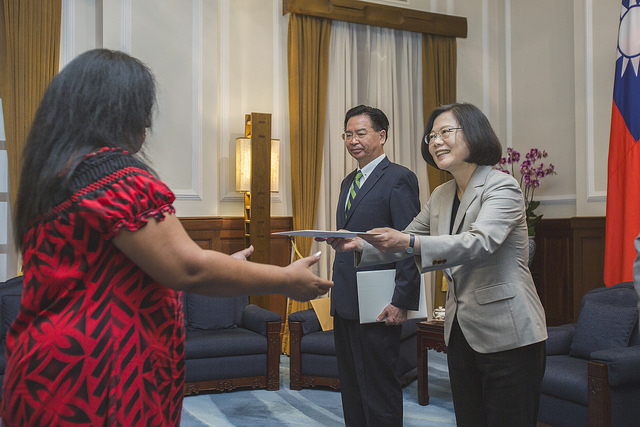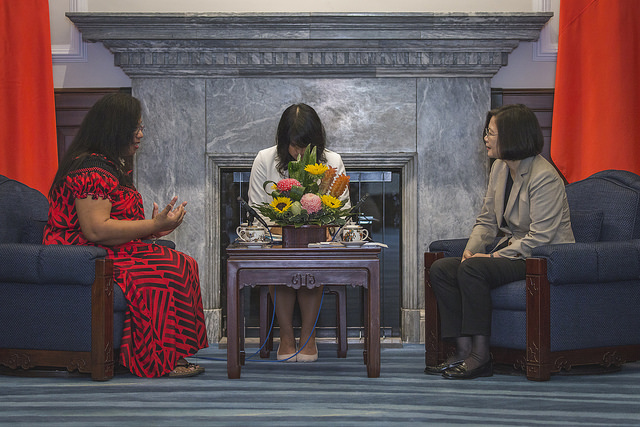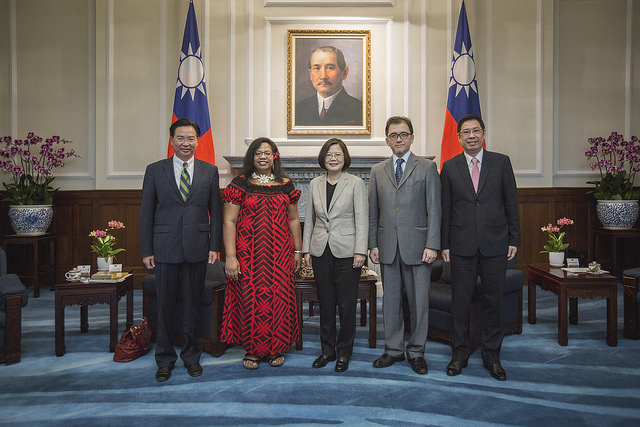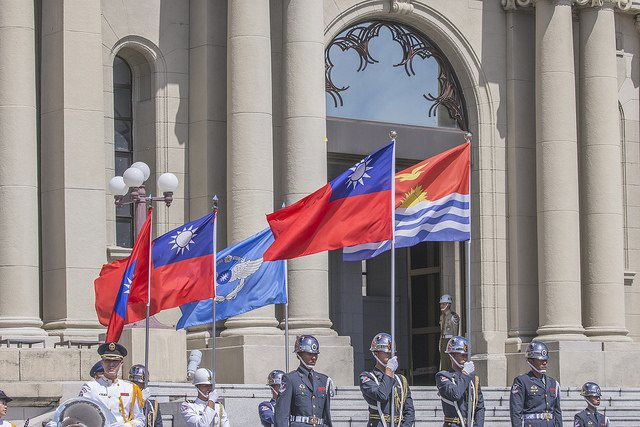News & activities
 News releases
News releases
President Tsai Ing-wen accepted the credentials of Tessie Eria Lambourne, the new Kiribati Ambassador Extraordinary and Plenipotentiary to Taiwan, on the morning of July 20 at the Presidential Office. The president welcomed Ambassador Lambourne to her new post in Taiwan, and expressed hope that bilateral cooperation and friendly diplomatic ties will continue to get stronger.
After accepting her credentials, President Tsai first congratulated Ms. Lambourne on embracing a new challenge as Ambassador to Taiwan, as the two countries celebrate 15 years of diplomatic ties. The president said that the ambassador is a long-term friend and supporter, and during her tenure as Secretary for Foreign Affairs and Immigration, she was instrumental in setting up the Kiribati embassy here. We sincerely welcome Ambassador Lambourne to her new post in Taiwan to continue deepening our friendly bilateral ties, the president stated.
President Tsai also said that Ambassador Lambourne is one of Kiribati's most outstanding talents. She has a wealth of experience, and her performance has been widely praised. She has served as Kiribati's Secretary for Internal Affairs, Secretary for Commerce, Industry and Cooperatives, and Secretary for Foreign Affairs and Immigration. In 2016, Ambassador Lambourne was also appointed Secretary to the Cabinet. So her appointment as Ambassador to Taiwan, Japan and Korea shows just how much Kiribati values its relationship with Taiwan, the president stated.
Commenting on the bilateral relationship, President Tsai pointed out that the Austronesian family of languages includes indigenous peoples from both Taiwan and Kiribati, and that we are both maritime countries. For many years, the two countries have had frequent exchanges in medicine and public health; technical cooperation in agriculture, livestock, and fisheries; as well as infrastructure, human resources development, and clean energy. Since establishing diplomatic ties, Taiwan and Kiribati have implemented over 100 cooperative projects.
Since taking office, President Tsai said, President Taneti Maamau has been promoting his Kiribati Vision 20 initiative, emphasizing the fisheries and tourism industries, as well as infrastructure development. In keeping with the spirit of "steadfast diplomacy and mutual assistance for mutual benefits," Taiwan will continue to share our national development experience with Kiribati, and deepen our cooperation to help make Kiribati Vision 20 a reality.
President Tsai further noted that just last month, Taiwan and Kiribati signed a memorandum of understanding on fisheries cooperation. That pact ensures stable operations for Taiwan's fishing fleets in Kiribati waters. It will also strengthen bilateral cooperation in the fight against illegal, unreported, and unregulated fishing, and protect sustainable fisheries industry development.
For Taiwan, the president stated, our diplomatic ties with Kiribati are important. With Ambassador Lambourne's help, we hope to see further developments in bilateral relations, and write a beautiful new chapter in our long-standing friendship. In closing, President Tsai once again congratulated the ambassador on her new post, and offered her a warm welcome to Taiwan.












